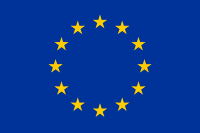Copyright Office Hours
Community Room
Changes at "To what extent is UK law harmonised with EU law?"
Description (English)
-
-
Despite the UK’s exit from the European Union, the copyright system of the UK is largely in line with EU copyright law. This means that the main exclusive rights copyright grants (like reproduction right, right of communication to the public), which allow the commercial exploitation of the copyrighted work and enable rightsholders to prevent certain uses of their work by others without their permission, are still observed under UK copyright law. The same applies to the originality criteria as developed by the Court of Justice (CJEU) judgements. CJEU’s judgements and interpretations of EU law dating up to the end of the Brexit transitional period (31 December 2020) still continue to apply in the UK. However, things may change and in future copyright rules of the UK may be altered and diverge from the rules of the EU.
One of the fundamental facts about copyright law is that it is territorial in nature. While copyright rules in the European Union are largely harmonised, for economic rights in particular (such as the right of reproduction or communication to the public), the rules may still change from member state to member state. This means that, for example, though one work is protected by copyright in one country, it may not be in another one.
The fragmentation of copyright rules in the EU is evident particularly in moral rights, which protect authors´ non-economic interests in their work, as well as in the exceptions and limitations to copyright. The 2001
Information Society Directive explicitly leaves moral rights out of the scope of the Directive and leaves their regulation to the national laws of member states. As for copyright exceptions, it is also important to consult the national laws of member states. Most exceptions are optional under EU law and therefore may not have been transposed at the member state level (i.e. added to the national laws of a given member state) or may have been implemented with variations.
-
+
Despite the UK’s exit from the European Union, the copyright system of the UK is largely in line with EU copyright law. This means that the main exclusive rights copyright grants (like reproduction right, right of communication to the public), which allow the commercial exploitation of the copyrighted work and enable rightsholders to prevent certain uses of their work by others without their permission, are still observed under UK copyright law. The same applies to the originality criteria as developed by the Court of Justice (CJEU) judgements. CJEU’s judgements and interpretations of EU law dating up to the end of the Brexit transitional period (31 December 2020) still continue to apply in the UK. However, things may change and in future copyright rules of the UK may be altered and diverge from the rules of the EU.
One of the fundamental facts about copyright law is that it is territorial in nature. While copyright rules in the European Union are largely harmonised, for economic rights in particular (such as the right of reproduction or communication to the public), the rules may still change from member state to member state. This means that, for example, though one work is protected by copyright in one country, it may not be in another one.
The fragmentation of copyright rules in the EU is evident particularly in moral rights, which protect authors´ non-economic interests in their work, as well as in the exceptions and limitations to copyright. The 2001
Information Society Directive explicitly leaves moral rights out of the scope of the Directive and leaves their regulation to the national laws of member states. As for copyright exceptions, it is also important to consult the national laws of member states. Most exceptions are optional under EU law and therefore may not have been transposed at the member state level (i.e. added to the national laws of a given member state) or may have been implemented with variations.
Instructions to participate (English)
-
-
By adding a comment on the section below, you can add further questions, thoughts, answers or comments on this topic that will be moderated by inDICEs project partners and visible to other participants in this space.
-
+
By adding a comment on the section below, you can add further questions, thoughts, answers or comments on this topic that will be moderated by inDICEs project partners and visible to other participants in this space.




